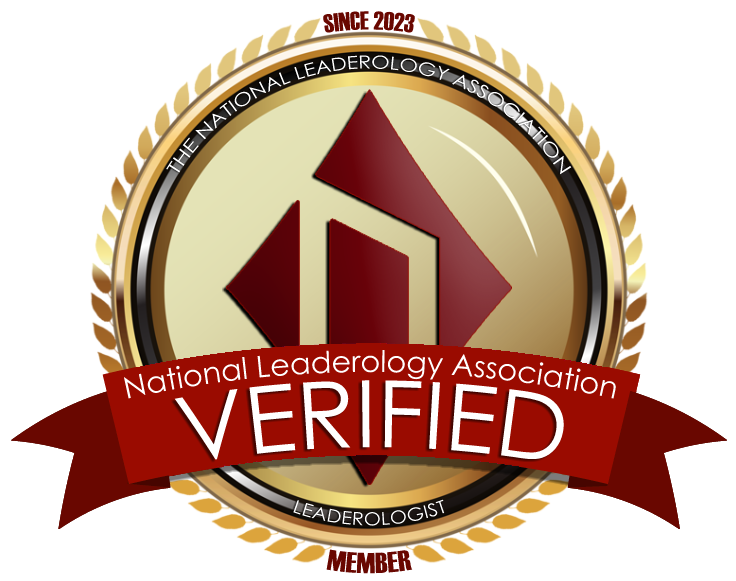
Careers in Leaderology
Leaderology is an interdisciplinary social science that prepares graduates for a wide range of professional pathways across organizational, governmental, academic, and consulting environments. Because leadership influences every sector of society, accredited leadership degrees provide a versatile foundation for both specialized and cross-industry careers. The National Leaderology Association affirms the value and relevance of leadership education and outlines the career options available to individuals pursuing this field at the undergraduate, graduate, and doctoral levels.
Understanding the Academic Landscape
Leadership degrees exist at multiple academic levels and across several sub-disciplines. Programs may be designated as:
-
Bachelor’s degrees: BA, BS in Leadership or Leadership Studies
-
Master’s degrees: MAOL, MSL, MSOL, MSSL, and related leadership-focused graduate degrees
-
Doctoral degrees: PhD in Leadership Studies, EdD in Leadership or Organizational Leadership, DEL, DSL, or similar advanced research and practice doctorates
These programs integrate leadership theory, behavioral science, organizational dynamics, ethics, decision-making, communication, culture, and strategic development. Students may also pursue concentrations in areas such as educational leadership, organizational leadership, military leadership, healthcare leadership, or public-sector leadership.
Career Opportunities Across Industries
A leadership degree is inherently multidisciplinary. Graduates find opportunities in sectors such as:
-
government and public administration
-
manufacturing and technical industries
-
business, finance, and professional services
-
nonprofit, community, and social impact organizations
-
education and academic administration
-
healthcare and human services
-
sports, athletics, and performance organizations
-
information technology and digital transformation sectors
Leadership graduates bring competencies in communication, strategic thinking, team development, systems behavior, and organizational analysis, equipping them for roles requiring influence, structure-building, and development of human capability.
Bachelor’s and Master’s Level Roles
Individuals with undergraduate or master’s-level leadership education commonly pursue positions such as:
-
Project Director
-
Strategic Planner
-
Organizational Development Specialist
-
Training and Development Professional
-
Leadership Consultant
-
Nonprofit Director or Program Manager
-
Healthcare Administrator
-
Operations and Team Supervisor
-
Leadership Coach (within scope of training)
-
Entrepreneur or Small Business Director
-
Organizational Trainer
-
Talent Development Specialist
These roles rely on applied leadership competencies, communication, analysis of group dynamics, and organizational effectiveness skills.
Doctoral-Level Roles
Doctoral graduates in leadership, leaderology, or related fields often pursue advanced positions involving research, strategic oversight, organizational diagnostics, and complex system leadership. Typical roles include:
-
Leadership Development Consultant
-
Organizational Researcher or Behavioral Scientist
-
Superintendent or Educational Leader
-
Chief of Police or Senior Public-Sector Administrator
-
Professor of Leadership Studies
-
Chief of Staff
-
College President or Academic Dean
-
Human Resources Director
-
Foundation or Nonprofit Executive
-
Senior Strategy Officer
-
C-Suite Roles (e.g., CEO, COO, CLO)
Doctoral preparation enables individuals to contribute to the science of leadership, conduct empirical research, guide policy, and shape leadership development at institutional levels.
Leaderology Careers
Leaderologists—those who hold multiple leadership degrees and demonstrate expertise in leadership science—represent a specialized subset of the discipline. Their academic depth and interdisciplinary training equip them for roles that require advanced understanding of human behavior, organizational systems, cognitive patterns, and developmental mechanisms.
Career paths appropriate for trained leaderologists include:
-
Executive Leadership Consultant
Advises senior executives and organizations on evidence-based leadership strategy, performance development, and behavioral diagnostics. -
Chief Strategy Officer
Guides organizational vision, long-term planning, and strategic execution while integrating leadership science into decision processes. -
Professor or Research Scholar in Leaderology
Conducts research, teaches leadership science, and advances the academic understanding of leadership cognition, behavior, and systems. -
Chief Learning Officer
Oversees institutional learning and development, implements leadership programs, and builds internal capability through evidence-based frameworks. -
Organizational Change Consultant
Supports organizations through major transitions, integrating psychological, cultural, and behavioral insights to guide adaptive restructuring. -
Chief Talent Officer
Leads talent acquisition, development, succession planning, and leadership pipeline construction. -
Leadership Research Scientist
Designs and conducts empirical studies on leadership mechanisms, behavior change, and organizational influence. -
Organizational Behavior Consultant
Diagnoses patterns of culture, communication, and team dynamics and recommends interventions grounded in leadership science. -
Military Leadership Specialist
Serves in officer roles, training commands, or strategic development units focused on leadership performance and readiness. -
Defense Analyst
Analyzes strategic leadership, national security demands, and operational decision-making. -
Athletic Director or Sports Leadership Consultant
Applies leaderology to athletic program management, team culture, and performance enhancement. -
Political Consultant, Analyst, or Advisor
Uses leadership insights to support political decision-making, communication, and strategy.
These examples illustrate the breadth of opportunities available to individuals trained in leaderology. Career pathways depend on degree level, specialization, experience, and continued engagement with leadership science.
Looking for a leadership career? Be sure to check out the NLA Job Board


